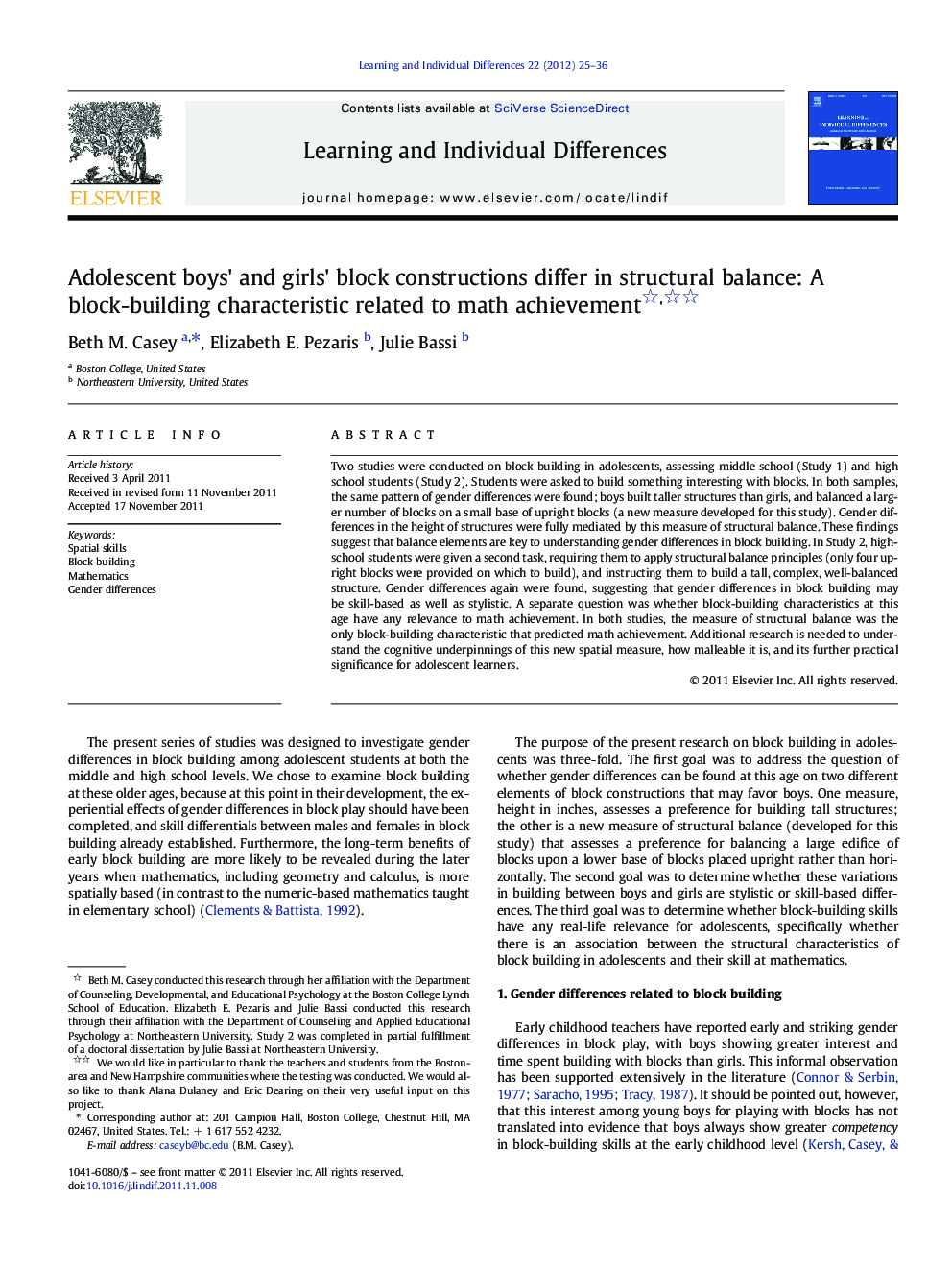| Article ID | Journal | Published Year | Pages | File Type |
|---|---|---|---|---|
| 365243 | Learning and Individual Differences | 2012 | 12 Pages |
Two studies were conducted on block building in adolescents, assessing middle school (Study 1) and high school students (Study 2). Students were asked to build something interesting with blocks. In both samples, the same pattern of gender differences were found; boys built taller structures than girls, and balanced a larger number of blocks on a small base of upright blocks (a new measure developed for this study). Gender differences in the height of structures were fully mediated by this measure of structural balance. These findings suggest that balance elements are key to understanding gender differences in block building. In Study 2, high-school students were given a second task, requiring them to apply structural balance principles (only four upright blocks were provided on which to build), and instructing them to build a tall, complex, well-balanced structure. Gender differences again were found, suggesting that gender differences in block building may be skill-based as well as stylistic. A separate question was whether block-building characteristics at this age have any relevance to math achievement. In both studies, the measure of structural balance was the only block-building characteristic that predicted math achievement. Additional research is needed to understand the cognitive underpinnings of this new spatial measure, how malleable it is, and its further practical significance for adolescent learners.
►Two studies were conducted on block building in middle and high school students. ►Males built taller structures and used structural balance principles when constructing. ►This new measure (structural balance) mediated gender differences in height of structures. ►A male advantage in using structural balance was skill-based as well as stylistic. ►Structural balance was the only block characteristic predicting math achievement.
